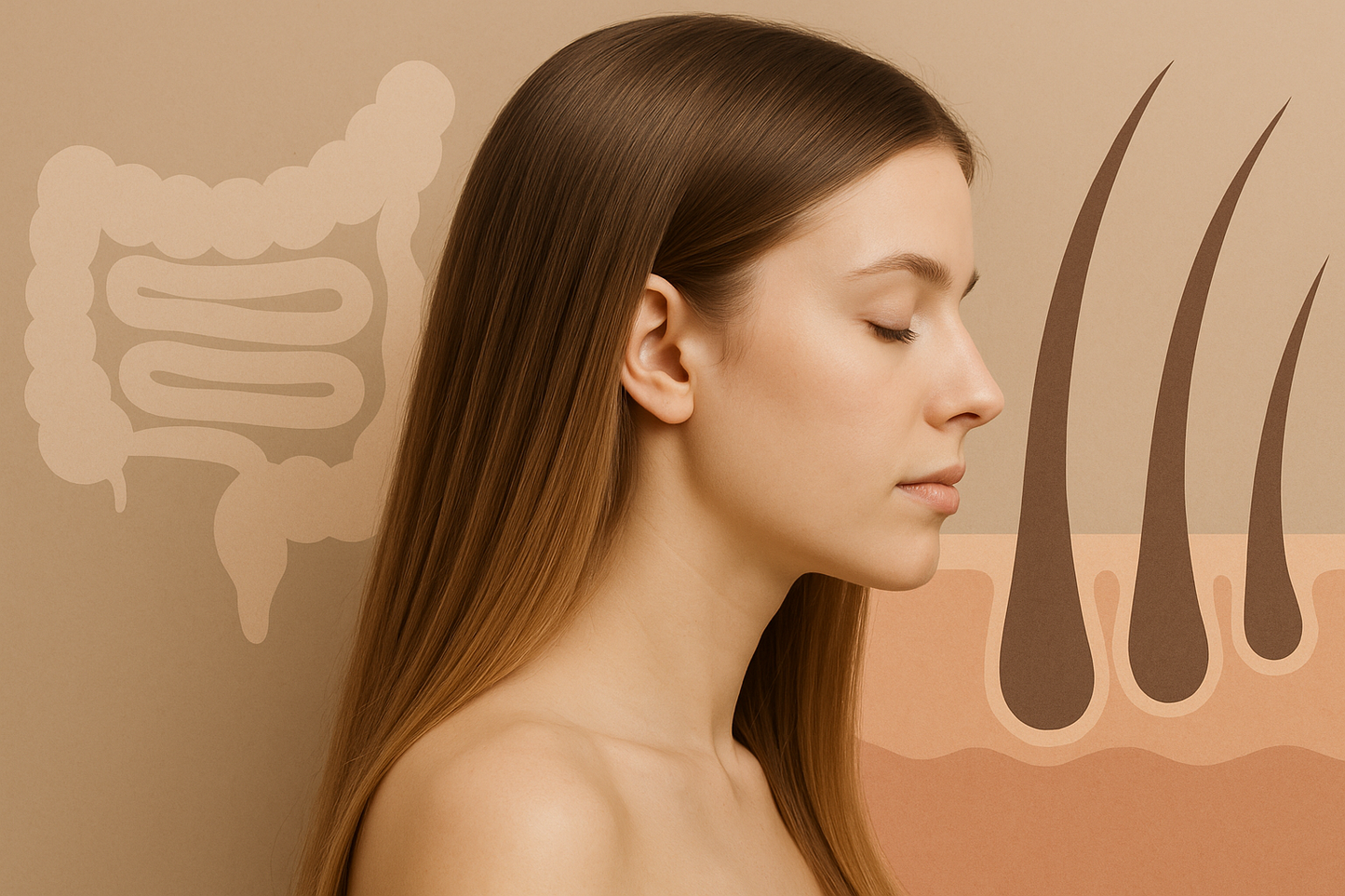In recent years, the phrase “everything starts in the gut” has evolved from a wellness buzzword into a growing area of clinical interest. While gut health is often associated with digestion or immunity, scientists are now examining how gut inflammation could influence skin health—including the condition of the scalp—and potentially impact hair.
So, what exactly is the gut–skin axis? In short, it’s the relationship between your gastrointestinal health and your skin. When the microbiome in your gut is imbalanced, or what researchers call dysbiosis, it can lead to widespread inflammation. This inflammation doesn’t stay limited to the gut—it can impact other organs and systems, including the skin and scalp. Poor gut health may compromise the skin’s barrier function and disrupt the balance of oils and microbes on the scalp.
The immune system plays a key part in this process. With nearly 70% of immune cells located in the gut, a disrupted intestinal barrier—sometimes called “leaky gut”—can allow bacteria, toxins, and other irritants to enter the bloodstream. The immune system may respond to these intrusions by triggering inflammatory pathways, some of which may show up in the form of scalp irritation or inflammatory conditions like eczema, seborrheic dermatitis, or even autoimmune-related hair loss such as alopecia areata.
Still, it’s important to be clear: not all scalp concerns are caused by gut issues. Hormonal shifts, genetics, external stressors, and nutritional deficiencies can all influence scalp and hair health. However, if you’re dealing with persistent flaking, oiliness, itchiness, or shedding, it may be worth considering your internal health as a contributing factor.
Taking care of your gut may also help support a healthier scalp environment. While more research is needed, some early evidence suggests that reducing systemic inflammation through lifestyle changes—such as improving your diet, managing stress, and prioritizing quality sleep—may improve overall skin and hair health.
In summary, while gut inflammation won’t directly cause hair loss for most people, it may contribute to the broader picture. Paying attention to your gut could be one more piece of the puzzle in supporting long-term scalp and hair vitality. If you’re experiencing unresolved scalp issues, consider speaking with a dermatologist or healthcare provider to take a more holistic look at what’s going on.















